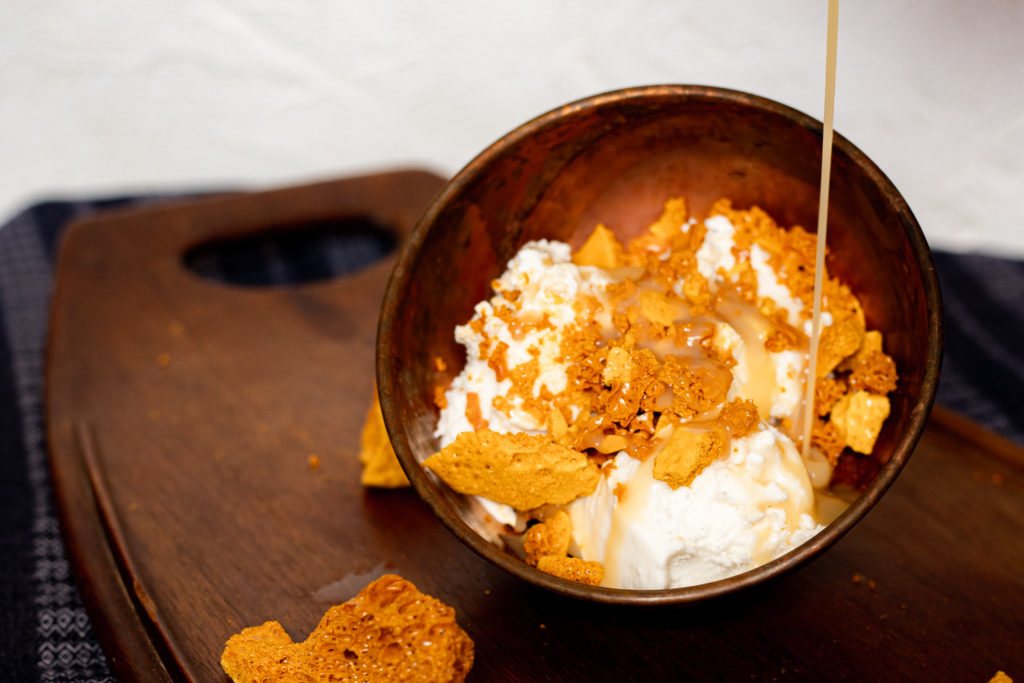
Here in Michigan, we often find ourselves celebrating every exciting sign of the return of Spring. A ray of sunshine, waking up to birdsong, a hint of green underneath the melting snow all start to show signs of life after a long, cold and quiet Winter. But surely the most exciting sign of Spring is the return of flowers and their counterparts, bees.
Bees don’t actually hibernate like other animals, despite common belief. Bees in Michigan spend their winters shivering. No, really! Bees will create a huddle around their queen and shiver to create warmth all season long. All of this shivering is a huge energy spender for such a small animal, and they are able to do this thanks to the high energy food source they spend all summer creating — honey.
Honey is a complicated natural product! Put almost too simply, it is made from the nectar that bees collect from their environment. Because of this, there are over 300 different types of honey, which all vary in flavor and composition. Plenty of Michigan beekeepers take advantage of this fact, and make snowbirds out of their bees. For example, Sleeping Bear Farms in Beulah, MI also brings their bees to sunny Florida in the winter, where instead of shivering all Winter, they start producing Tupelo Honey.

In the Garden:
If you want to encourage bees to visit your garden, you should grow a diverse variety of pollinator plants. Diversity means that bees will be able to find pollen sources in different blooming seasons, and will reduce the probability of pests. Native plants like blue cardinal flower and yellow giant hyssop are great bee-friendly options!
If you are interested in starting your own apiary, reach out to the beekeepers in your community. They may sell nucs, or small bee colonies. There are also folks who offer beekeeping consultations and classes!
In The Medicine Cabinet:
Honey contains antioxidants and acts as a natural cough suppressant, and as a source of sugar, can help with boosts of energy. However, honey purchased commercially can be cut with corn syrup, which does not include these benefits, so be sure to purchase your honey locally!
Celebrate honey with our recipe for Honey Caramel Sauce (pictured above!)
Claire Butler is the Communications Coordinator for Taste the Local Difference. You can reach her at [email protected].
